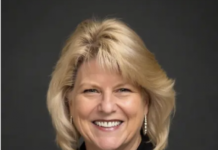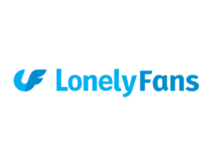(Isstories Editorial):- Queensbury, New York Oct 3, 2025 (Issuewire.com) – Heivy, a wellness-focused e-commerce brand, is observing a growing shift in how families are approaching children’s health and daily routines. With parents increasingly attentive to the early development of healthy habits, the conversation around children’s wellness is evolving beyond simple diet or exercise, emphasizing balance, consistency, and adaptability in day-to-day life.
“Families today face a range of pressures–school schedules, extracurricular activities, and digital distractions,” said a Heivy representative. “What we’re seeing is a real desire to integrate wellness in ways that feel natural and sustainable, rather than as a series of rigid rules.”
Recent studies suggest that habits formed in childhood have long-term impacts on both physical and mental wellbeing. As a result, parents are seeking approaches that not only encourage healthy eating and activity but also foster curiosity, resilience, and self-awareness in their children. This cultural shift reflects broader trends in wellness, where convenience, flexibility, and mindfulness are increasingly central to family life.
More on Isstories:
- Mango AI’s Picture to Dance Generator Creates AI Dance Videos From Images
- CLATapult’s Individual Mentorship Program Becomes a Massive Success, Driving 25% Growth in Two Years
- What Is a Math-Based Puzzle Game Worth Playing? — Sudoku – Classic Sudoku Puzzle
- India’s 1st Rosewater Raindance Setup in Wavefire HolyWaves 2026 In Surat Gujarat
- Democrat Jamin Harkness Launches Campaign for Georgia State Senate District 7
One notable trend is the move toward routines that can fit seamlessly into busy days. Families are exploring practices that combine nutrition, physical activity, and mental well-being in simple, repeatable ways. Experts highlight that creating early positive experiences–such as consistent meal patterns, short physical activity sessions, or moments of reflection–can make wellness a natural part of a child’s lifestyle rather than a chore.
“Parents are looking for tools and ideas that support their children without feeling like an added burden,” the Heivy spokesperson explained. “It’s about enabling families to create a supportive environment, where healthy habits are encouraged organically through everyday routines.”
In addition to structured habits, children’s exposure to wellness education is changing. Schools, community programs, and even digital platforms are emphasizing the value of understanding nutrition, physical health, and emotional wellbeing from a young age. This aligns with the broader societal movement toward preventive care and holistic wellness, which prioritizes balance and consistency over short-term fixes.
Experts note that early engagement in wellness can positively affect children’s academic focus, energy levels, and social-emotional development. By introducing practices that are age-appropriate and enjoyable, families can set the stage for habits that persist into adolescence and adulthood. Heivy observes that these insights are shaping the conversation around how children’s health is addressed in homes, schools, and communities.
“Ultimately, supporting children’s wellness is not about a single product or solution,” the Heivy representative added. “It’s about fostering an environment that encourages curiosity, consistency, and confidence in making choices that contribute to overall wellbeing.”
As more families embrace these strategies, the emphasis is on practical, achievable steps that integrate seamlessly into daily life. From creating mindful mealtime routines to encouraging brief moments of activity and reflection, the focus is on sustainable approaches that nurture growth, resilience, and balanced development.
By observing these trends and participating in the wider dialogue on family health, Heivy highlights a crucial aspect of modern wellness: fostering early habits that can shape a child’s lifelong approach to well-being, equipping the next generation with the tools they need to thrive in an increasingly complex world.
This article was originally published by IssueWire. Read the original article here.




















